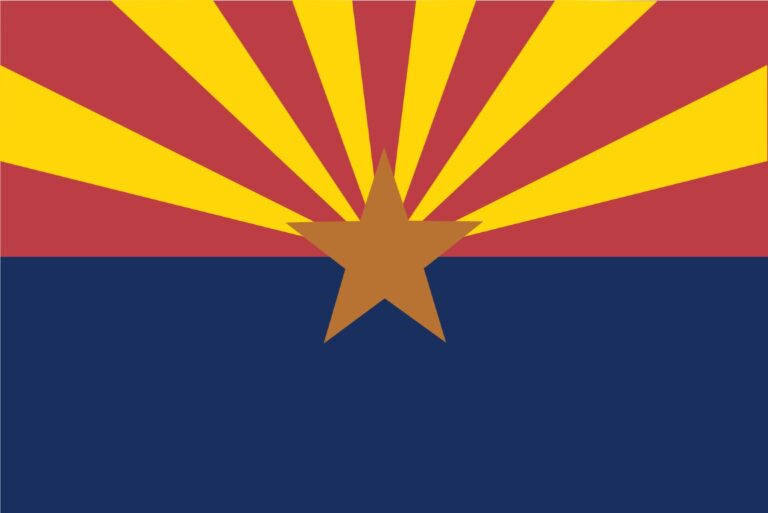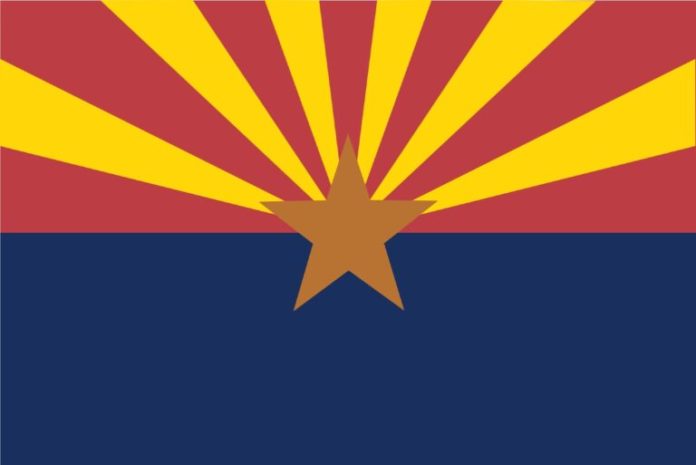Understanding basic property rights begins with understanding laws on trespassing. If anyone can just come onto your property with no rhyme or reason, and without provocation, you really don’t have as much control as you think you do.

Happily, all states have laws governing trespass, and each has its own regulations for the declaration and enforcement of trespassing as well as penalties for violating those laws.
Arizona is a state of contrasts in this regard. If you have open or undeveloped land that has no fencing or other barricades around it then it is very difficult to qualify uninvited passage or presence as trespassing.
On the other hand, the state cracks down hard on flagrant trespassing of enclosed land or residential property. Keep reading and we will tell you everything you need to know about Arizona’s trespass laws.
Arizona Trespassing Law Overview
- The State of Arizona requires fencing or other barricades to be around undeveloped land for the control of pedestrians when it comes to trespassing.
- For vacant land, posted signage or other markings forbidding trespassing are required if verbal notice is not given specifically to would-be trespassers.
- Arizona’s trespass law covers residential and temporary dwellings as well as all other real property structures, vehicles, and enclosed or fenced undeveloped land.
- Some kinds of trespassing are felony crimes in Arizona.
What Constitutes Trespassing in Arizona?
Trespassing is best defined in Arizona law as entering or remaining unlawfully upon any premises or property by a person when they’re intent for doing so or remaining on the property is not explicitly permitted, authorized, licensed, or privileged.
Note that entering onto any property without privilege or permission with the express intention of committing a crime goes beyond trespassing, but someone who is merely on or within property anyway without explicit criminal intent is, in most cases, qualified as trespassing.
Generally, this is a misdemeanor and not a forcible felony, meaning that the use of substantial force in defense of that property is not justified under Arizona law.
You can check out the relevant definitions under Arizona’s criminal code in Section 13-1501.
Title 13 – Criminal Code § 13-1501 Definitions
In this chapter, unless the context otherwise requires:…2. ” Enter or remain unlawfully” means an act of a person who enters or remains on premises when the person’s intent for so entering or remaining is not licensed, authorized or otherwise privileged except when the entry is to commit theft of merchandise displayed for sale during normal business hours, when the premises are open to the public and when the person does not enter any unauthorized areas of the premises.3. ” Entry” means the intrusion of any part of any instrument or any part of a person’s body inside the external boundaries of a structure or unit of real property.…
Does Arizona Require “No Trespassing” Signs?
Yes. For the protection of open, undeveloped land or non-residential property that is normally accessible to the public under business hours no trespassing signage must be posted to qualify unpermitted access or presence as trespassing.
Is Fencing Required to Protect Property?
Yes, in order to qualify trespassing in the second degree for commercial yards or non-residential structures and also to protect undeveloped vacant land.
Notably in Arizona anyone who enters upon undeveloped vacant land is not trespassing straight away unless they are notified by the property owner, owners duly authorized agent, or law enforcement to leave and they refuse to do so.
Basically, if you want people to stay off of your vacant land under penalty of being charged with trespassing immediately you’ll need to fence it in or have appropriate signage posted at regular intervals. That’s just the way it is.
Check out Arizona criminal code section 13-1504 for more information.
Title 13 – Criminal Code § 13-1504 Criminal trespass in the first degree; classification
A. A person commits criminal trespass in the first degree by knowingly:1. Entering or remaining unlawfully in or on a residential structure.2. Entering or remaining unlawfully in a fenced residential yard.…B. Criminal trespass in the first degree under subsection A, paragraph 6 of this section is a class 5 felony. Criminal trespass in the first degree under subsection A, paragraph 1 or 5 of this section is a class 6 felony. Criminal trespass in the first degree under subsection A, paragraph 2, 3 or 4 of this section is a class 1 misdemeanor.…
What Other Marks Indicate “No Trespassing”?
Unlike many other states, Arizona does not have any specific regulations for colors, types, and styles of paint that can be applied to trees or other landscape features to mark the bounds of a property.
If you want to declare your intention to restrict trespassers from your property in Arizona, you’ll have to go with signs or fencing.
Can Solicitors Ignore “No Trespassing” Signs?
No, in most cases. Being present on a property in violation of a clearly posted no trespassing sign is considered trespassing in the third degree under 13-1502.
Although it might be a difficult thing to bring to court, it is possible that the offender could be fined if you really wanted to press the matter.
Can Trespassing Result in Arrest in Arizona?
Yes, it can. Refusing to leave after being told to by the property owner or law enforcement can get you arrested, and in the case of second and first-degree trespassing you could be facing serious charges.
First-degree trespassing in particular can be a felony and will definitely get you arrested.
You can check out Arizona criminal code section 13-504 which covers criminal trespass in the first degree for all the specifics on a trespassing that will get someone arrested immediately for violating it.
Note that this entails any trespass in or on a residential structure, unlawfully remaining in or entering a fenced residential yard or looking into the windows, or infringing upon the privacy of people in a residential structure.
Can You Take Someone to Court for Trespassing?
Absolutely, although it will rarely be worth your while except in the case of flagrant and repeated violations of your property rights, the more serious forms of criminal trespass in the first degree within the State of Arizona until serious charges.
You might have a civil case in addition to a criminal one.
Special Instances of Trespassing in Arizona
Arizona has several laws on the books regarding trespassing at the state level, usually concerning state-run utilities, industrial installations, and the like.
At any time, knowingly entering or remaining in railroad track right of ways, storage yards, switching yards or any rolling stock of a railroad company is a misdemeanor. Entering any fenced commercial yard unlawfully is a class 2 misdemeanor.
Entering onto any real property with a valid mineral claim or lease with the intention to hold, remove or exploit the minerals of the claim or lease is a class 1 misdemeanor.
There are also specialty instances of trespassing which can net you felony charges. Namely, entering or remaining unlawfully in any critical public service facility is a felony, as is entering or remaining upon the property of any other person before burning, defacing, or otherwise vandalizing any religious symbol or religious property.
Sections 13-1502 and 13-1504 have the specifics.
 Like what you read?
Like what you read?
Then you’re gonna love my free PDF, 20 common survival items, 20 uncommon survival uses for each. That’s 400 total uses for these dirt-cheap little items!
Just enter your primary e-mail below to get your link:
We will not spam you.


